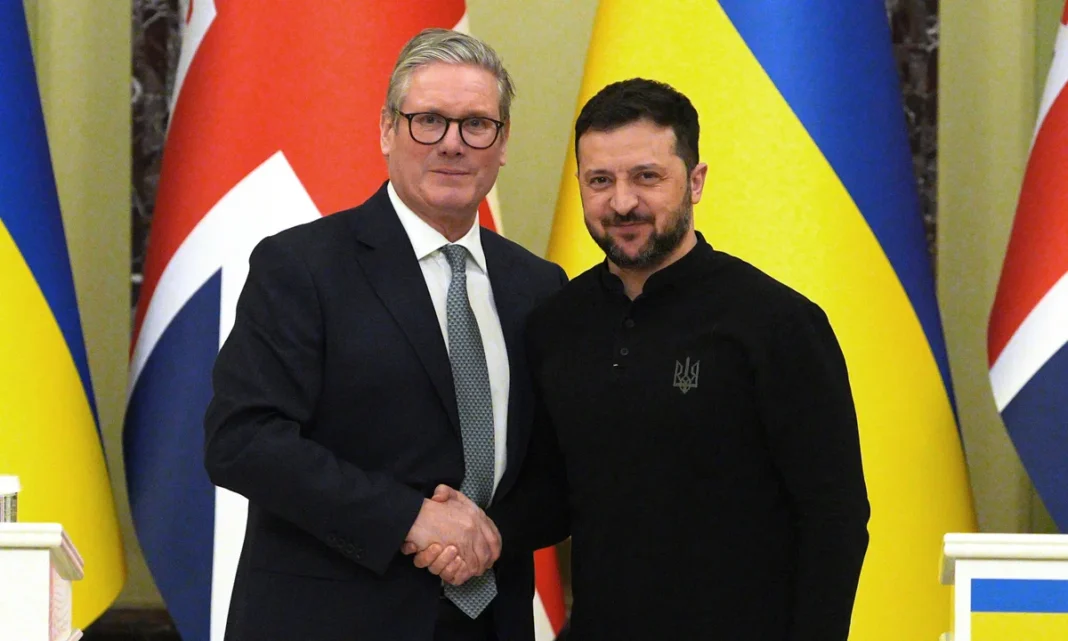British Prime Minister Keir Starmer is walking a delicate diplomatic line as Ukraine’s President Volodymyr Zelensky meets world leaders in Washington. While publicly reaffirming unwavering support for Kyiv, Starmer’s government privately acknowledges the possibility of a land for peace deal to end the war.
Last week, Zelensky visited Downing Street amid rising tensions over Russia’s aggression. Meanwhile, US President Donald Trump prepared for controversial talks with Vladimir Putin. Starmer has consistently condemned Putin’s actions while cautiously avoiding inflammatory rhetoric.
Unlike Boris Johnson, who blasted Trump’s meeting with Putin as “vomit-inducing,” Starmer’s team maintains a measured tone. Behind the scenes, however, UK officials recognize that a land for peace deal may be inevitable.
British sources outline three critical questions in any potential agreement. First, how much territory would Ukraine cede? Second, which specific regions would be involved? Third, would the transfer be de facto or de jure?
A de facto arrangement means accepting Russian military control without legal recognition. A de juredeal, however, would legitimize Moscow’s claims internationally. Either way, the path ahead remains fraught for Ukraine.
As leaders gather at the White House, Starmer aims to achieve two key objectives. First, he hopes Zelensky will carefully consider Trump’s proposals. Second, he seeks stronger security guarantees for Ukraine post-conflict.
Trump’s envoy, Steve Witkoff, recently praised these guarantees as “game-changing.” This endorsement boosts Starmer’s efforts to build a “coalition of the willing” with European allies. The UK government views this progress as a rebuttal to earlier skepticism.
US involvement remains unpredictable. Witkoff hinted at “Article 5-like protection” for Ukraine, mirroring NATO’s mutual defense clause. Zelensky welcomed this as historic, but European leaders await concrete commitments from Trump.
British officials describe Trump’s approach as an “exercise in raw power.” They believe his primary goal is securing a deal, even if it strains Western unity. Starmer, meanwhile, balances pragmatism with steadfast support for Ukraine.
While Starmer avoids explicit endorsements of a land for peace deal, his government’s private stance suggests difficult choices loom. The UK insists any territorial decisions rest solely with Kyiv. Yet the reality of negotiations may force painful concessions.
As Starmer stated before departing for Washington, “Everybody wants this war to end.” The challenge now is ensuring peace is both lasting and just. For Ukraine, the road ahead remains uncertain, but the possibility of a land for peace deal grows ever more tangible.
For more political updates, visit London Pulse News.


